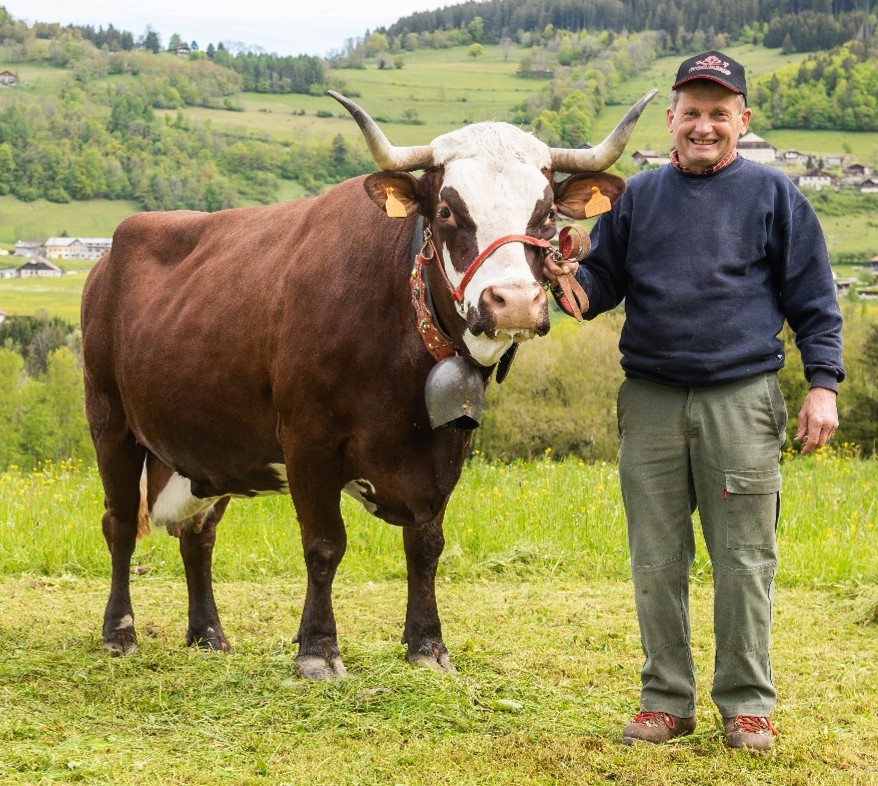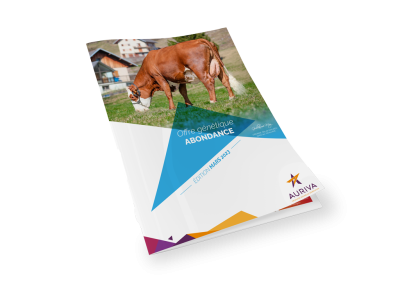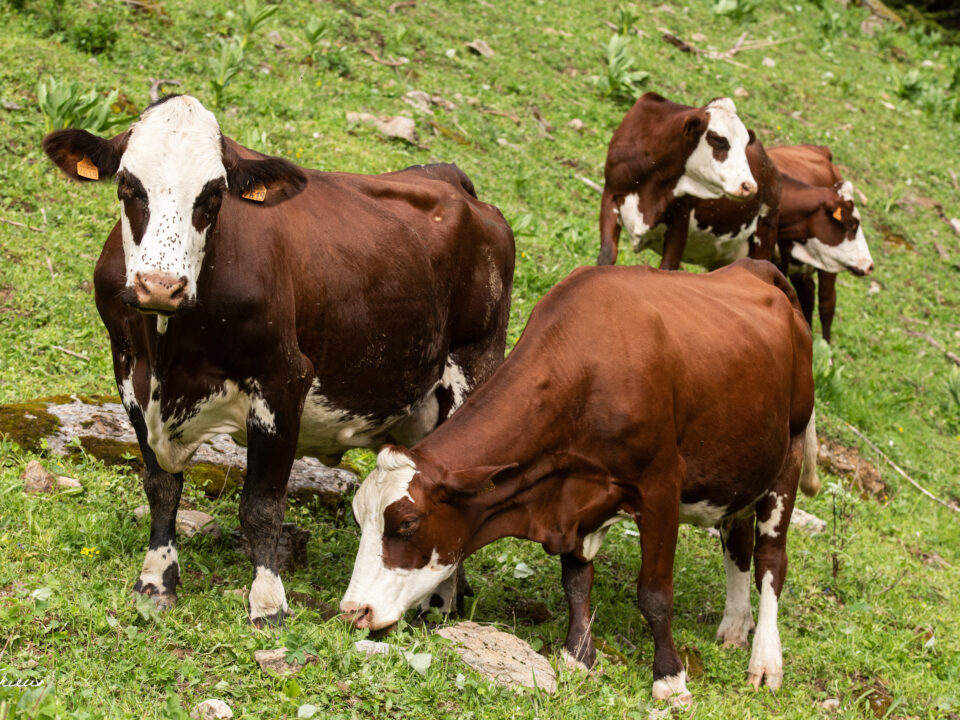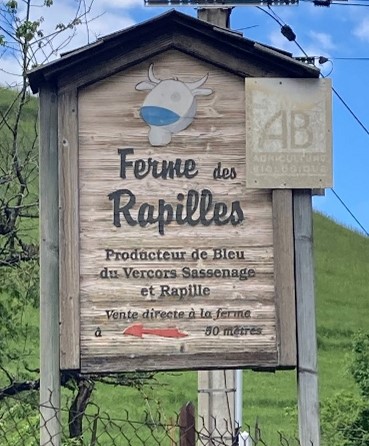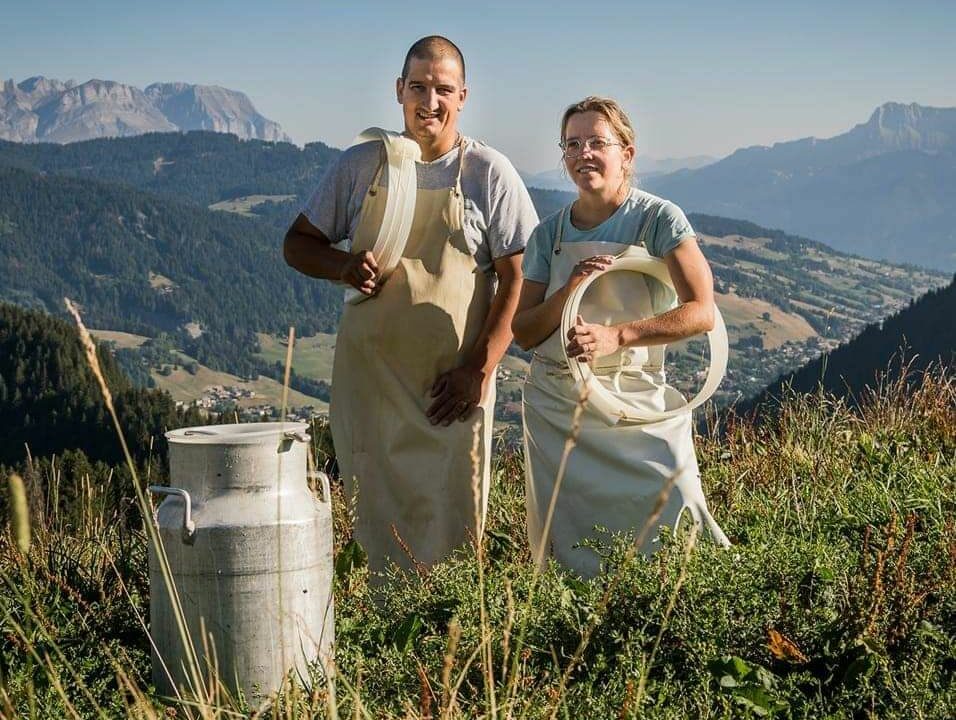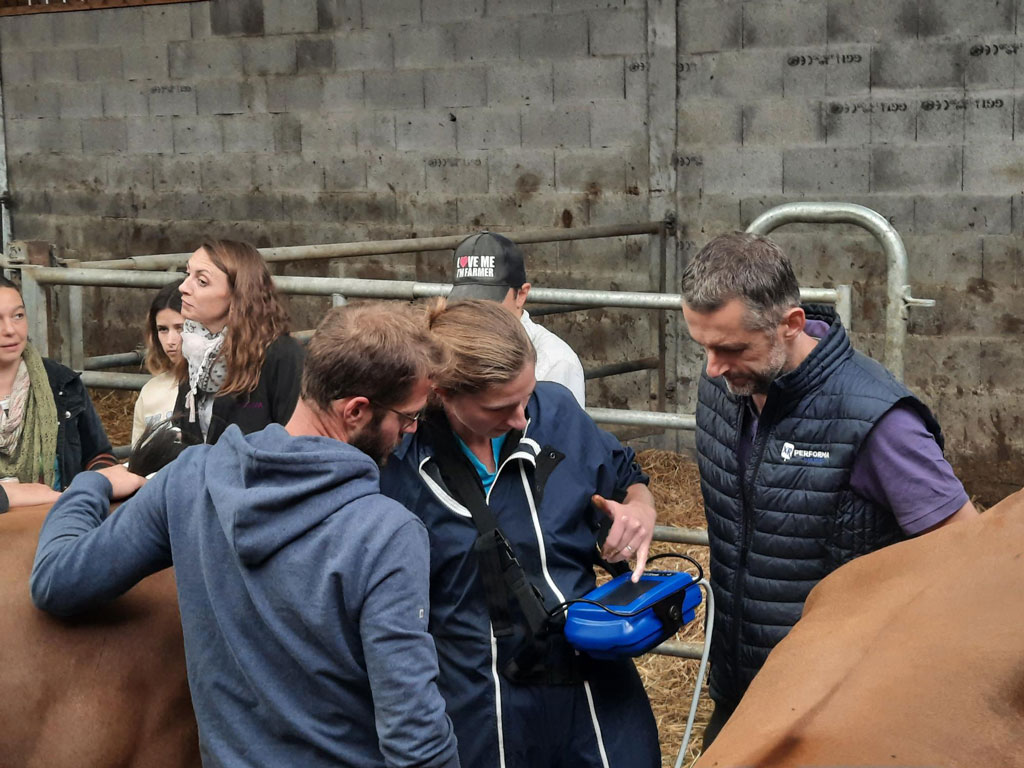
Progress in genetics with Tarins embryos
1 January 2023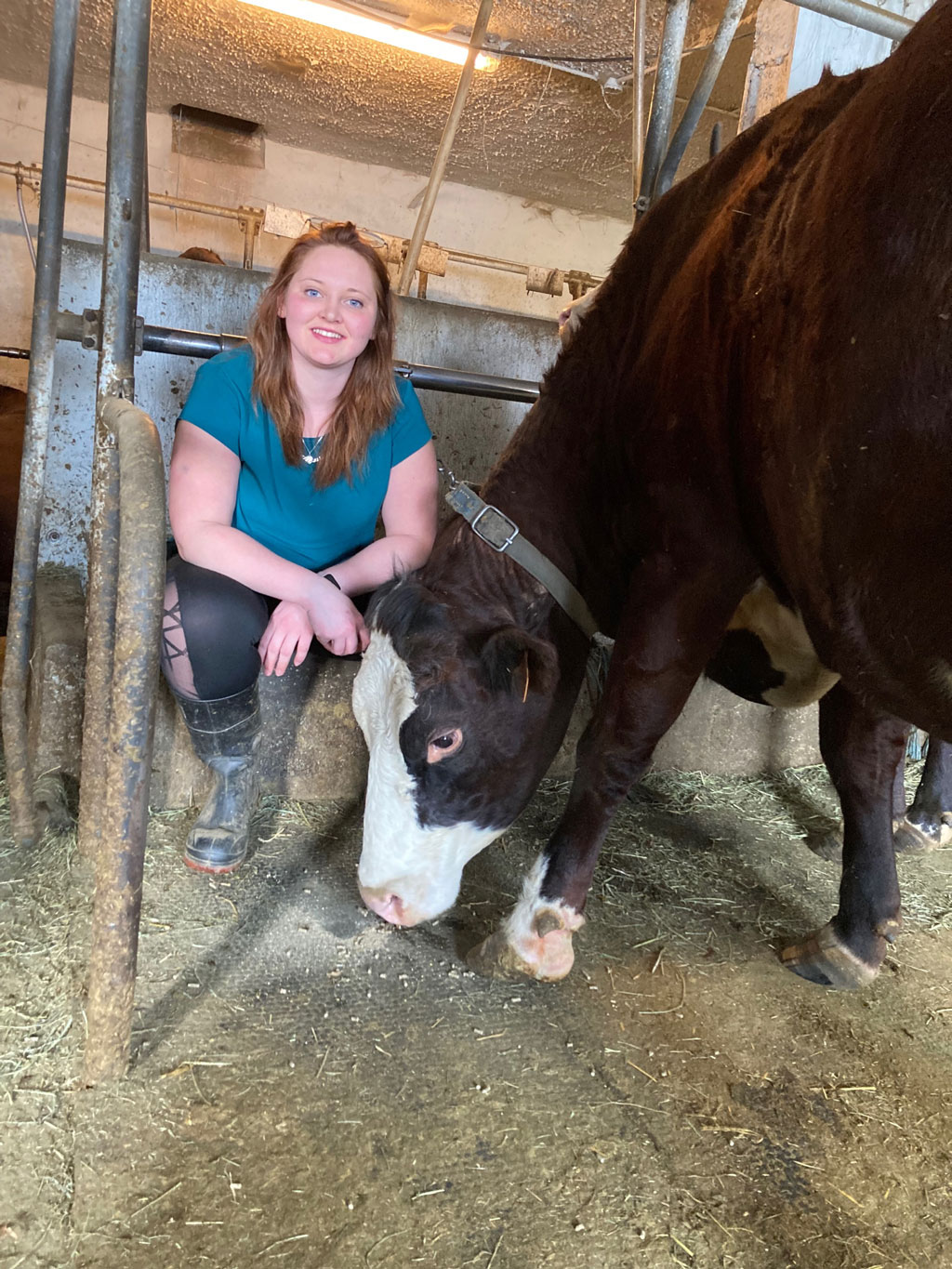
Abondance is also a women’s story!
11 April 2023Progress in genetics with Abondance embryos
In 2021, France will have 81,325 Abondances, including 44,005 cows and 31,380 heifers. Today, Abondance is found in over 20 départements, mainly in Haute-Savoie and Savoie, but also in the Massif Central. New departments such as the Pyrenees are also turning to this hardy breed. To meet this growing demand for animals and to adapt our services to our breeders, the Abondance technical team and members of the Genetics Committee have been working on new on-farm collection contracts.
The aim of AURIVA-Elevage and its Embryo Transplantation (ET) service is to make high-quality genetic material available to Abondance breeders already in business, as well as to newcomers.
Having access to TE will enable breeders to multiply interesting strains on the farm, but also to save time by reducing the generation interval between strains: all with the support of a high-performance, high-quality field team!
One of the other significant advantages of ET is, of course, the safeguarding of certain strains that may be affected by health concerns, such as neosporosis, which is transmitted via the foetal tract, or besnoitiosis, transmitted by flying biting insects (flies, horseflies, mosquitoes): ET is therefore a good way of “saving” genetics and conserving progeny.
Within AURIVA-Elevage and in partnership with OSRAR, an “Embryo” working group made up of Abondance breeders who are members of the Genetics Commission was set up in 2022.
The aim of this group was to answer the question “How can the TE service be deployed for Abondance breeders?
This is to meet a variety of needs:
► As part of the selection scheme: how to guarantee progress and genetic variability?
► For breeders: what is the availability of genetic material?
This working group was made up of a technical team, 4 Abondance breeders and 4 Tarins breeders. They met several times during the year to define together the economic and TE service issues at stake.
They began by working on the various issues raised in the field, and on the outline for the distribution of this service, in order to build together collection contracts adapted to the challenges of the breed and the needs present in the field.
Starting with the origin of the embryos (schema or private), we have traced the embryo production chain and the various forms of financial aid available.
ROMARIC PUTHOD
manager at the Poisy breeding center and member of the working group, shares her experience with us:
For several years now, I have been taking part in the work and various meetings of the Abondance schema and genetics commissions. It’s an exhilarating job, where you rub shoulders with real enthusiasts, breeders and technicians… and we humbly try to provide genetic solutions to the expectations of breeders and the industry. In 2022, AURIVA, in partnership with OS RAR and CAP Tarentaise, realized that the former embryo bank could not sufficiently meet the demand for abundance and tarin embryos, and proposed the creation of a think tank on mountain breed embryos, collection methods and financing.
As a user of biotechnologies, I was immediately interested in being involved in this reflection.
A small but young team, led by Laura, Alexandre and Philippe, took on the project with a fairly consensual approach to individual objectives, geographical origins, industry expectations and a wide variety of breeding systems.
Naturally, the aim is to multiply the progeny of the most interesting animals, but also to combat Neosporosis, which has affected some good strains in our stock. ET also makes it possible to increase genetic progress. The mix of genotyping/genomic staging and TE is a formidable gas pedal for anyone using biotechnologies. It should be borne in mind, however, that genetic diversity can be reduced if the multiplication of a small number of strains is not controlled.
Without wishing to lecture, we have found over the years that the keys to a successful embryo collection and transfer operation lie in the health and body condition of the target animals. Finally, the feed distributed before and during the protocol (energy level of the ration, no excess of soluble nitrogen, trace elements and vitamin supplementation) is essential. It is therefore preferable to avoid periods of dietary transition. And don’t forget to ask a technician on the collection team for advice: if the technician doesn’t think the animal is “in good condition” (too thin or too fat), or with insufficient ovarian activity, it’s best to wait a few weeks to optimize the success of the collection!
With the various contracts on offer, you can be either a “producer” or a “buyer” of embryos tomorrow. The current proposal may not be perfect for everyone, but it does have the merit of allowing everyone to retain their “freedom” when it comes to managing “their” genetics… If you have any ideas or suggestions for improvement, please let us know. Any suggestion is always welcome; nothing is set in stone!
Through my testimonial, I hope to have inspired you to test or develop your use of ET. It’s a financial investment, of course, but also in terms of time and energy, and in the medium to long term you’ll see the fruits of the seeds you’ve sown.
Starting with the origin of the embryos (schema or private), we have traced the chain of embryo production and the various forms of financial aid available. This resulted in 3 types of contract, detailed below:
As part of the Schéma Abondance program, AURIVA-Elevage is setting up collection contracts to increase the number of animals of high genetic value while preserving genetic variability.
The females are selected by our Abondance genetic manager.
To encourage production and support the breeder’s commitment, the financial terms and conditions are adapted to each stage of the process:
CONTRACT SCHEDULE
-
Help in preparing the donor: €100
-
Aid for embryo production: €340
-
Then either :
-
Fresh embryo placement aid: €100/emb.
-
Repurchase of the embryo by AURIVA: 150€/emb
The Banque contract will enable us to create embryos which will then be made available to other breeders.
This contract will make it possible to procreate embryos and thus “spin” our genetics. The females are selected by our Abondance genetic manager.
To encourage production and support the breeder’s commitment, the financial terms and conditions are adapted to each stage of the process:
BANK CONTRACT
-
Total responsibility for collection and freezing
-
Help with installation in fresh produce: 60€/emb (for non-freezable items)
-
Repurchase of the freezable embryo by AURIVA: €20
A final option was to purchase embryos from private collections.
In order to regularly replenish the bank, and if breeders are willing to bank embryos, there is the option of buying back the embryo from the breeder.
PRIVATE CONTRACT
-
Once approved by the Abondance team, embryos are purchased at €200/embryo.
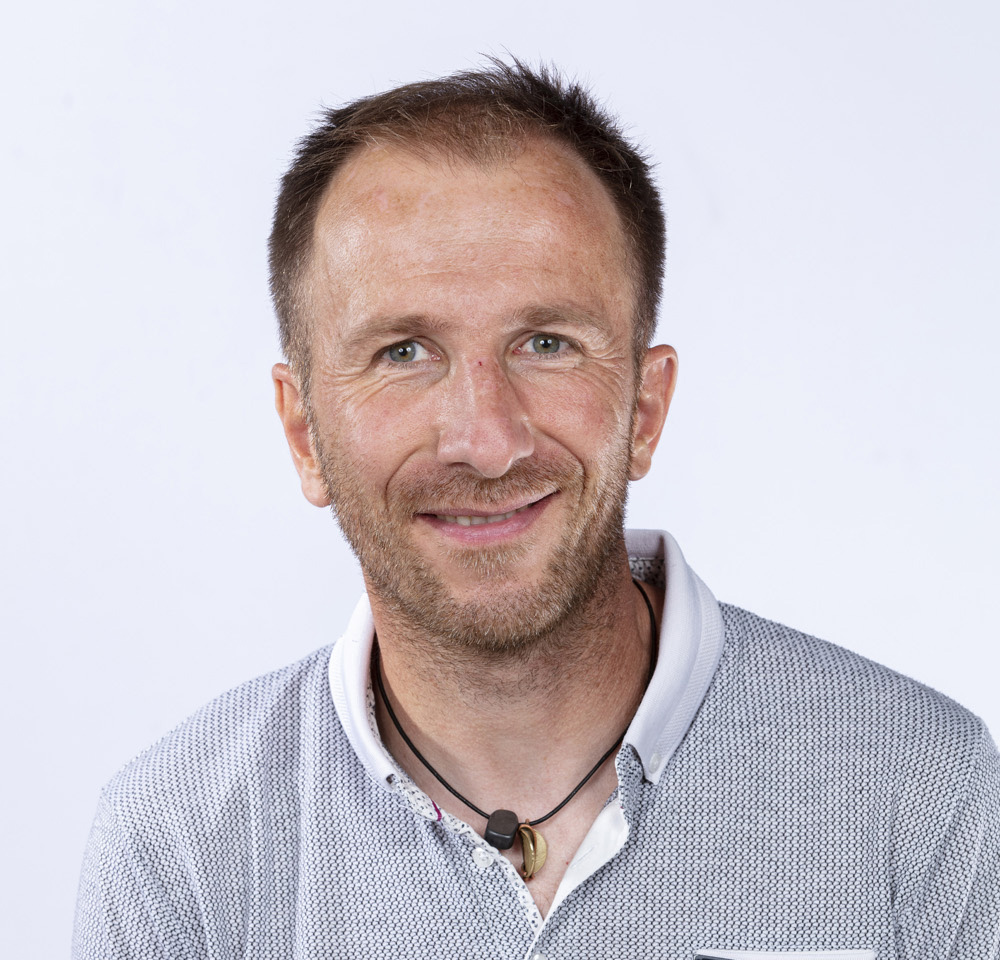
Philippe BOULENS
Technician Abondance
For further information, please contact Philippe Boulens, Bruno Ménétrier or Jean Philippe Chesney.
philippe.boulens@auriva-elevage.com
0684589100

